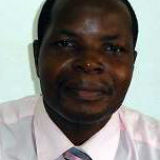Tracking Health Resources Using National Health Accounts
Maina and Mwai describe the policy utility of National Health Accounts (NHA) tool for tracking health spending especially for countries aiming to achieve Universal Health Coverage. They trace the history of health resource tracking and the introduction of NHA based on the Organization of Economic Co-operation and Development’s System of Health Accounts methodology. They describe data collection for and preparation of NHA which disaggregate expenditures by four dimensions: sources of financing, financing agents, types of health-care providers and types of health-care functions.
Economic and public health impact of decentralized HIV viral load testing: A modelling study in Kenya
Kenya has the world’s 4th largest HIV burden. Various strategies to control the epidemic have been implemented, including the implementation of viral load (VL) testing to monitor HIV patients on ARVs. Like many resource limited settings, Kenya’s healthcare system faces serious challenges in effectively providing quality health services to its population.
Agricultural production diversity, dietary diversity and nutritional status: Panel data evidence from Tanzania
Household agricultural production for self-consumption is often highlighted by nutritionists as the main route to increasing household food security and nutritional status, especially for the poor in developing countries. At the same time, the income gains from specializing in fewer crops and selling the surplus product could be an alternate route to improved nutritional status. We use Tanzanian data to study linkages between the diversity and market orientation of a household’s agricultural production, the quality and diversity of their diets, and the nutritional status of their children.
Pagination
- Previous page
- Page 26
- Next page






